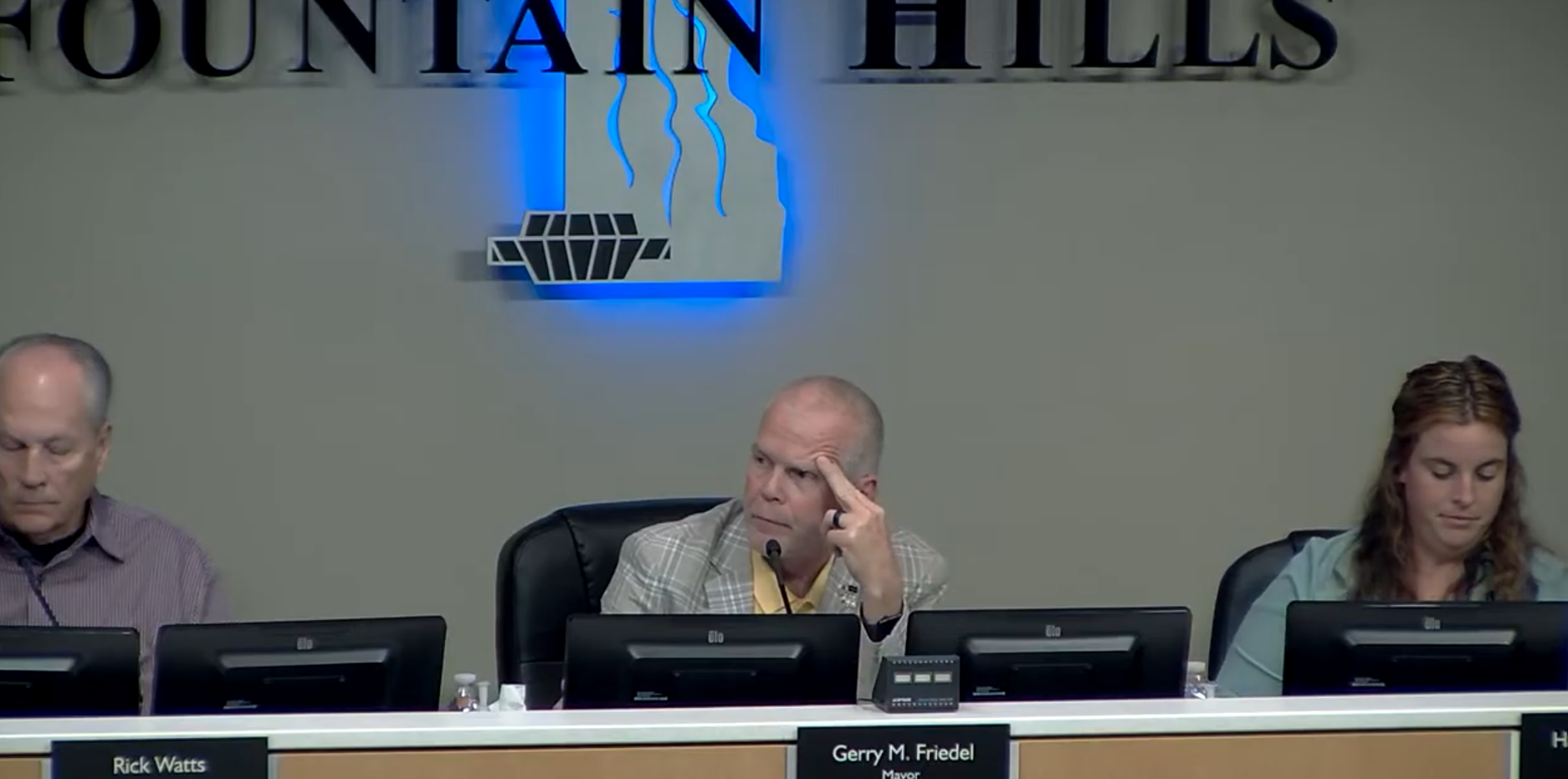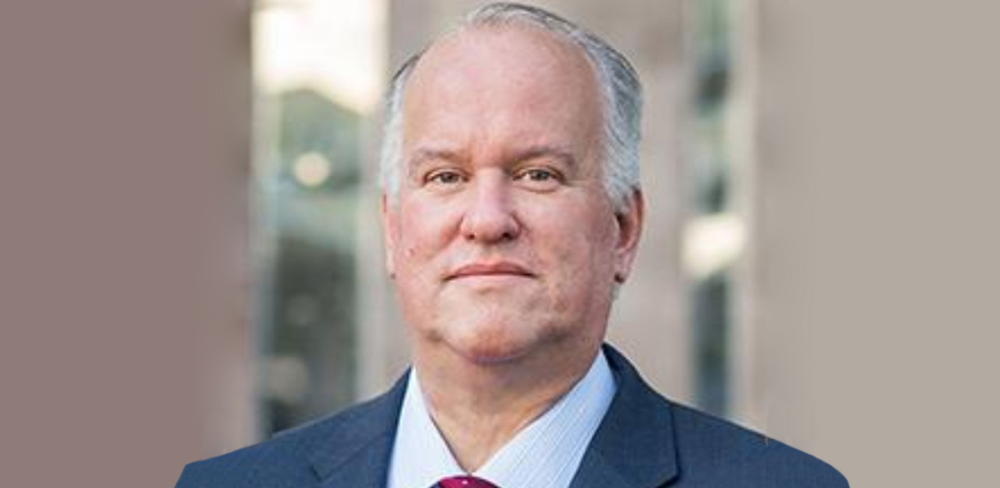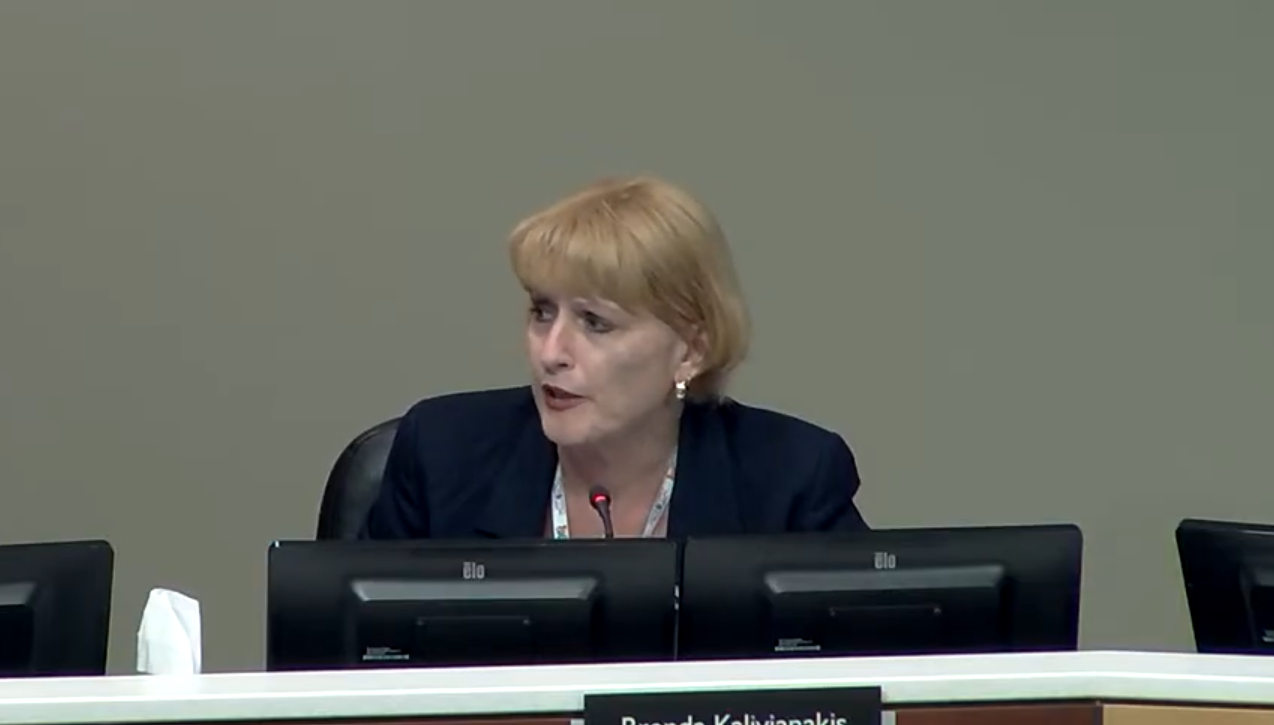
Fountain Hills Town Council

Audio By Carbonatix
A few months ago, President Donald Trump created a First Amendment firestorm by barring the Associated Press from certain events because the outlet declined to refer to the Gulf of Mexico as the “Gulf of America.” In Arizona, a similarly petty battle is playing out over the freedom of the press.
In the Valley town of Fountain Hills, a right-wing contingent of the town council removed a press table – primarily used by the local Fountain Hills Times Independent newspaper – because those councilmembers did not like the tone of the paper’s coverage. The paper can still cover town council meetings but must sit among the crowd.
The reason for the change was revealed in an op-ed from Councilmember Brenda Kalivianakis, which fittingly appeared in the Times Independent. After noticing the table had been removed during a May 6 council meeting, Kalivianakis filed a public records request for emails about the decision. Those emails revealed that at least two councilmembers explicitly tied the table’s removal to their dislike of the paper’s coverage.
“Frankly, I am fed up with the Times partisan reporting and think it is time to remove the corner ‘reporters’ table,” Councilmember Rick Watts wrote in one email. “If the Times personnel cannot act and report in a factual, nonpartisan manner, without resorting to sensational headlines, reporting on the council and various commissions without obvious bias, then I see no reason for providing any special seating accommodation.”
An email from Fountain Hills Vice Mayor Hannah Larrabee echoed Watts’ disdain for the local press.
“I’d like to suggest we remove the media table from the council chambers,” Larabee wrote. “The Fountain Hills Times Independent, especially since the change of ownership, has consistently misquoted the council, reported on items while only seeking statements from one side of the aisle, and on several occasions reported on my job without researching or seeking to understand what I do there.”
Watts and Larabee did not respond to a request for comment from Phoenix New Times, including about which stories published by the Times Independent had “sensational headlines” or showed “obvious bias.” A quick scroll through news headlines from the outlet didn’t reveal any that are particularly sensational.
Ryan Winslett, managing editor at the paper’s chain Independent Newsmedia, said the company’s president and editor-in-chief were both on vacation and could not provide a comment until Monday.

Gregg Leslie, the executive director of the First Amendment Clinic at ASU’s Sandra Day O’Connor College of Law, said the decision to remove the press table is “wrong.”
Arizona State University
Attack on the press
Kalivianakis first noticed the press table was gone during a May 6 council meeting, asking town manager Rachael Goodwin if it was broken and when it would return.
“There was a discussion and a directive from the mayor and several other councilmembers with the request to remove the table from the space,” Goodwin responded. “Given that this is the council’s chambers, the mayor and council has that prerogative.”
Councilmember Peggy McMahon chimed in to ask that the issue be put on a meeting agenda “because I wasn’t asked” about the decision to remove the table. She was shot down because she wasn’t called on to speak, but Kalivianakis continued pressing the issue, addressing Mayor Gerry Friedel.
“This is the first I’ve heard of it and I am on this council,” she said. “Mr. Mayor, would you like to comment on that?”
Friedel responded that the item was not on the agenda and did not comment on the table’s removal. Kalivianakis and McMahon asked for it to be put on the agenda in the future, but it was not discussed at the next meeting on May 20.
New Times asked Friedel whether the outlet’s coverage was the reason he and other councilmembers killed the press table.
“You have answered your own question and have the emails to support the answer,” he responded.
First Amendment experts consulted by New Times agreed the move is an unflattering look for the council. “It’s always bad when you see a public official doing something to punish the press for their coverage,” said Gregg Leslie, the executive director of the First Amendment Clinic at ASU’s Sandra Day O’Connor College of Law. “It’s wrong.” Seth Stern, the director of advocacy at Freedom of the Press Foundation, called retaliation illegal.
“It’s very much unconstitutional for the government to in any way punish the press over its editorial or content decisions,” Stern said.
However, Leslie wondered whether the move was enough grounds for a lawsuit. The AP successfully sued over its exclusion from covering certain Trump events, but Leslie said the press table issue “might not be worth bringing a lawsuit over because there’s not much provable damage, and cities are not obligated to maintain a press table.”
Stern acknowledged that the press isn’t entitled to have its own table, but said the reason for removing it is more important in light of the First Amendment. “If (the paper) has its own desk, that desk cannot be taken away in retaliation for its constitutionally protected reporting, whether the government likes it at all,” Stern said. “It’s the same thing we’re seeing at the federal level.”

Fountain Hills Councilmember Brenda Kalivianakis wrote an op-ed decrying the decision to remove a table for the press.
Fountain Hills Town Council
Residents upset
The move has upset more than just First Amendment experts. Several Fountain Hills residents told New Times they are angered by the removal of the press table.
Resident Don Scott called the Times Independent’s coverage “completely unbiased” and rejected the notion that the paper’s work is slanted. “They do a fantastic job, and I’m a former journalist going back years,” Scott said. He called the decision to remove the press table “outrageous,” “petty” and “part and parcel of the bigger picture of what’s going on in town.”
Another resident, Cindy Couture, criticized the move in her own Times Independent op-ed on May 8, two days after the table was removed. “The action appears to be part of our town’s MAGA whisper campaign to shut down the town paper,” she wrote. “Think what our town would be without it, just a mess of Facebook misinformation.”
Faryl Palles, a 22-year resident of Fountain Hills, told New Times that the Times Independent has “reported on some events that reflect really poorly on the council,” though the council’s retaliation casts it in an even worse light.
“It’s really hard for me to characterize it in any way other than shades of fascism,” she said. “I think they mean to trample any critiques of what they’re doing. I think they mean to govern non-transparently, even though Mayor Friedel campaigned on being transparent.”
In her op-ed, Kalivianakis said the removal of the press table “highlights disregard for transparency by our local officials.”
“Punitive measures are meant to control, influence and silence news coverage and criticism by concerned private citizens.” she continued. “Retaliation inherently has a chilling effect, making journalists and citizens hesitant to investigate controversial topics or criticize those in power. If journalists are reluctant to report on sensitive topics, the people regrettably pay the price.”
For Stern, that’s the upshot. The press table dustup might seem like a small-town squabble, but it’s a canary in a big and crumbling coal mine.
“Although this might seem minor and petty because the press can still report, it usually starts out minor and petty before it escalates,” Stern said. “And when a government is allowed to get away with that first step because everyone brushes it off, that sends them the message that they can get away with more.”